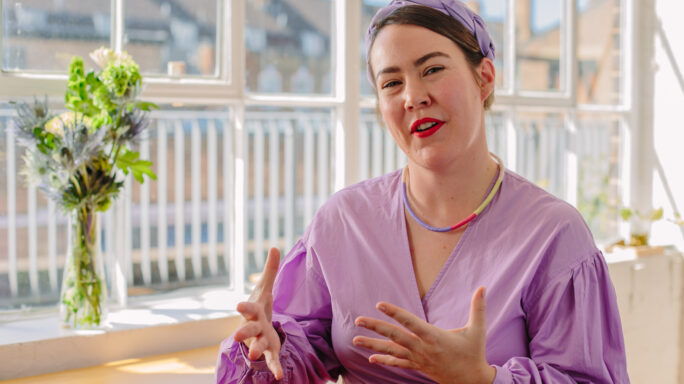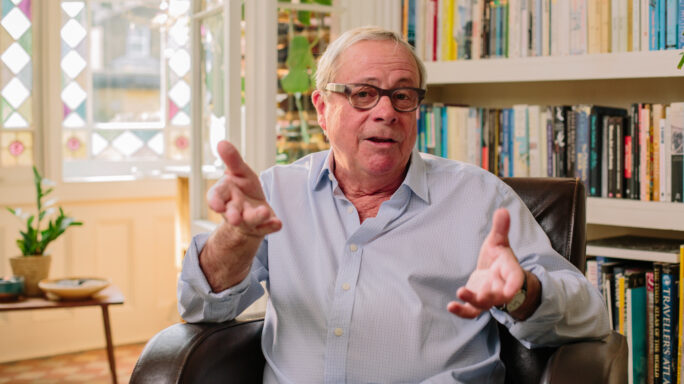Season 2: Unlocking productivity
Less haste, more speed

At work, there is always a chance to pause. It may not feel like it, but there is always the opportunity for a moment’s reflection. Even a few seconds or minutes can have a powerful effect, keeping you more productive during your day. The same is true on a larger scale. A day or two every few months spent away from the everyday tasks can have an enormous effect (Bill Gates used to take a “Think Week” once every two years for example).
A business leader on a leadership programme at Oxford University once said to me, “I have realised that time out, is time in”. It’s a powerful idea. A pause, whether it’s a moment before entering a room, or a week disconnected from the daily pressures to think about strategy, can be a catalyst to refocus, regenerate or reinvigorate.
Pause to focus or “switch off”
The beauty of a pause is how simple and familiar it is to us. Moreover, you have the ability to choose what kind of a pause you need and how long or short it needs to be. You don’t need to re-engineer your whole working life, or create a complicated time management system, or take up a practice like meditation, yoga, or tai chi (beneficial though they may be).
You simply make pause “a thing” for yourself–recognising the importance of pausing every now and then, giving yourself permission to do so and inviting yourself to play around so that you can discover what works for you.
It can be short enough to regain your focus in moments of stress or long enough to provide time to “switch off” from a problem or an overwhelming project. And there are several ways to harness the power of pause that can be applied to your working day.
Take a breath
Breathing is thankfully automatic, so using it to help overcome an intense or stressful period feels very natural. This simple act changes you physically and mentally. So, when you’re feeling the overwhelm of a full inbox, relentless phone calls, or looming deadlines, you can “take a breath” before reacting or responding. This isn’t mystical at all, there is a wealth of science that tells us that a deep breath or sigh resets our nervous system in very important ways.
Shift your attention to your belly, relax it, and let it expand (instead of breathing from the chest), and take a gentle breath. By focusing on your body for three or four seconds, you can change your mindset and your mood and help break the cycle of rush, panic, or overreaction.
Take a walk
Another easy way to pause is to take a walk. This is something you can make time for at defined points during the day, or you could allow yourself to be spontaneous and when you feel the need, you take a walk. Walking and thinking are closely linked and give you a natural “pause for thought.” I like to think of this as creating an “empty space” – a chance to think about ideas or tasks and approach them in a different way.
Mind and body are intertwined, so when you move your body, you move your mind. Which is often exactly what is needed.
robert poynton
Even a short walk can put you in a different mindset. So, during a natural break, try a short walk around the block to get your thoughts flowing. Or consider a slightly longer walk during your lunch break to switch off. In just a few minutes, you can change your mental and physical rhythm with immediate effects. In such pauses the subconscious tends to do some amazing work for you and you come back not just rested, but with new insight or ideas. I got the idea for how to organise my book Do Pause during one such walk. I was stuck and instead of pushing harder, I went for a walk with the dog and the ideas came to me.
Count to one
Perhaps an even easier and quicker way to build a pause into your day is to count to one before you enter your office or a meeting. That sounds ridiculously short, but I promise you it helps. Obviously, you can count to three or ten as well, and that would give you a little more space, but even counting to one forces the briefest of pauses, just long enough to check in with yourself and how you’re feeling.
Alternatively, try looking for triggers–places or moments–to pause so you don’t have to rely on physically entering a room to do it. People think they are short of time, but I rather mischievously suggest to people that no matter how busy you are or what position you hold in business, you can never claim to be too busy to count to one!
Make “pause” a priority
Life without pause is unproductive and affects how we feel, physically and mentally. It seems to me that if you don’t stop to think, life will force you to stop and think. And with burnout being ever more common in our working lives, especially if you’re seen as “successful”, a pause is a subtle, yet powerful, concept to help you change rhythm. Often, that will mean slowing down, but not always. Pausing is about allowing you to flex and vary your time as it suits you.
So, whatever you’re doing and whatever speed you’re going, make “pause” a priority. The results will help make things flow better and keep you more productive in the long run.





Leave a comment